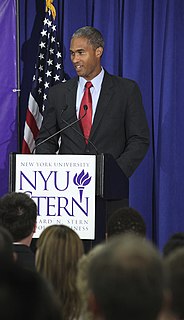A Quote by Peter Blair Henry
Fear of foreign domination in India led the Janata Party, in the 1970s, to push for partial Indian ownership of all multinational firms within the country. The result was a spectacular pullback, by companies such as IBM and Coca-Cola, and a stagnant economy.
Related Quotes
Coca-Cola remains emblematic of the best and worst of America and Western civilization. The history of Coca-Cola is the often funny story of a group of men obsessed with putting a trivial soft drink "within an arm's reach of desire." But at the same time, it is a microcosm of American history. Coca-Cola grew up with the country, shaping and shaped by the times. The drink not only helped to alter consumption patterns, but attitudes toward leisure, work, advertising, sex, family life, and patriotism.
Today you have a situation where now the prescription is: People who don?t have enough money to buy food should end up paying for their drinking water. That is going to be the kind of situation in which you will get more child labor. You will get more exploitation of women. You?re going to get an absolutely exploitative economy as the very basis of living becomes a source of capital accumulation and corporate growth. In fact, the chief of Coca-Cola in India said: ?Our biggest market in India comes from the fact that there is no drinking water left. People will have to buy Coca-Cola.
Coca-Cola is little more than sugar, some flavoring, and lots of (carbonated) water. It is largely indistinguishable from innumerable other brands of cola, yet people around the world seem to think that Coca-Cola is something and they are eager to ask for it by name and even to pay a premium for it.
Taoist chanting, Confucian chanting, Christian chanting, Buddhist chanting don't matter. Chanting Coca Cola, Coca Cola, Coca Cola … can be just as good if you keep a clear mind. But if you don't keep a clear mind, and are only following your thinking as you mouth the words, even the Buddha cannot help you.
Buffett's methodology was straightforward, and in that sense 'simple.' It was not simple in the sense of being easy to execute. Valuing companies such as Coca-Cola took a wisdom forged by years of experience; even then, there was a highly subjective element. A Berkshire stockholder once complained that there were no more franchises like Coca-Cola left. Munger tartly rebuked him. 'Why should it be easy to do something that, if done well two or three times, will make your family rich for life?
The traditional model for a company like Coca-Cola is to hire one big advertising agency and essentially outsource all of its creativity in that area. But Coca-Cola does not do it that way. It knows how to manage creative people and creative teams and it has been quite adept at building a network that includes the Creative Artists Agency in Hollywood, which is a talent agency.




































